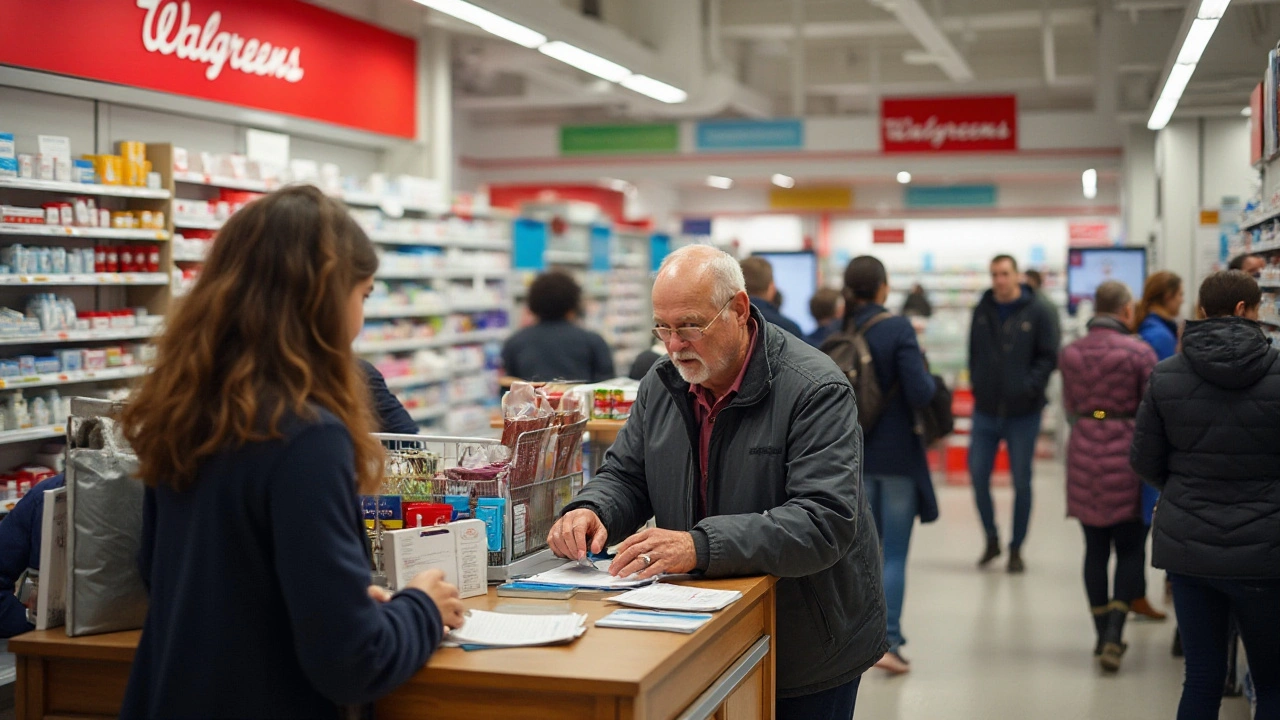CVS Alternatives: Smart Ways to Save on Prescriptions
Paying full price at CVS isn't your only option. Whether you want lower prices, faster delivery, or a more personal touch, there are solid alternatives that many people don’t know about. This guide gives simple, practical options so you can pick the one that fits you—without risking safety.
Where to look for CVS alternatives
Big-box and supermarket pharmacies: Walmart, Costco, Kroger, and Target often have lower prices on generics. Costco's prices are especially good if you already have a membership and need large quantities.
Online and mail-order pharmacies: Amazon Pharmacy, PharmacyChecker-listed sites, and established mail-order services tied to insurers (like Express Scripts or OptumRx) can cut costs if you order 90-day supplies. Look for clear contact info, a licensed pharmacist, and a requirement for a prescription.
Independent local pharmacies: Small shops sometimes match or beat big chains and offer advice or free delivery in your neighborhood. They can be more flexible with pill syncing and timing your refills to reduce trips.
Discount services and coupon sites: GoodRx, SingleCare, and similar apps show prices at nearby pharmacies and offer printable coupons. These can make a big difference for uninsured or high-deductible plans.
Telehealth + specialty services: Telehealth platforms like Hims or Roman focus on specific conditions and bundle consultation + medication. For chronic meds, concierge pharmacies or manufacturer patient-assistance programs may offer discounts or free samples.
How to save money and stay safe
Compare total cost, not just list price. Check copays, shipping fees, and whether you need a new Rx. Use price comparison tools, then call the pharmacy to confirm the final cost.
Ask about generics and therapeutic equivalents. Generic drugs are usually much cheaper and work the same way. If you’re switched to a different brand or strength, confirm with your prescriber first.
Buy 90-day supplies when appropriate. Many plans and mail-order pharmacies lower the per-dose cost for three-month fills. Make sure storage and expiry fit your needs.
Verify online pharmacies before you buy. Look for a state license, NABP/VIPPS seal, a real US address, pharmacist contact, secure checkout (HTTPS), and a required prescription. Avoid sites that sell controlled meds without a valid Rx.
Use patient assistance and manufacturer coupons for brand-name drugs. If cost is still high, talk to your doctor about alternatives or samples while you sort coverage.
Transfer prescriptions smartly. If you find a better price, most pharmacies will handle transfers. Ask about transfer timelines and keep a few days’ supply while switching to avoid gaps.
Switching from CVS can save you money and improve service—just pick a reputable option, compare prices, and double-check safety credentials. Need help comparing a specific drug or pharmacy? Tell me the medicine and I’ll pull quick tips.
This article explores eight alternatives to CVS.com, each offering unique health and wellness services. From Walgreens to Albertsons Pharmacy, we delve into the pros and cons of each option to help you make an informed decision. With varied services like online prescription management, competitive pricing, and convenient locations, these alternatives offer valuable solutions for managing your healthcare needs. Discover which pharmacy fits your requirements best, whether it's due to location, service range, or pricing.
